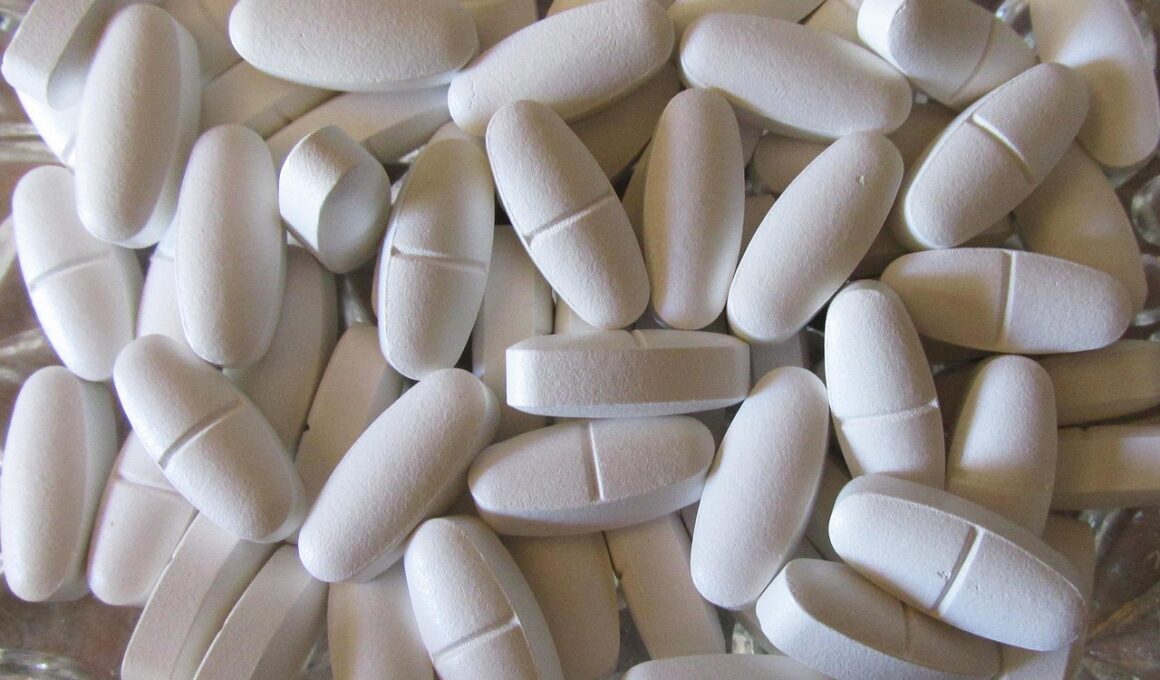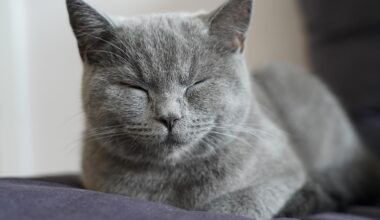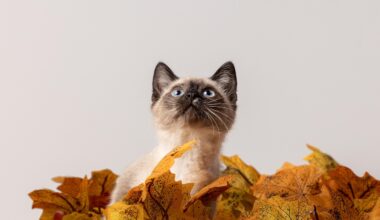Choosing the Right Vitamin D Supplements for Your Cat
Vitamin D is crucial for your cat’s overall health, promoting strong bones and a robust immune system. However, cats cannot naturally synthesize this vitamin effectively from sunlight as humans can. Therefore, it is vital to incorporate vitamin D supplements into their diet, especially if your feline spends significant time indoors. The right supplement ensures they receive the needed nutrients for optimum health. When selecting a vitamin D supplement, consider their specific dietary requirements, including age, weight, and any health conditions. Always consult your veterinarian to choose the appropriate dosage and formulation. Human vitamins often contain ingredients that may be harmful to cats; thus, it’s crucial to find products specifically designed for them. Reading labels is essential for understanding the ingredients and ensuring no toxic components are included. Look for high-quality brands that use natural ingredients and have undergone safety testing. Choosing a reputable company guarantees that your cat receives safe and effective vitamin D. Always monitor your cat’s health after introducing any new supplement to spot any adverse reactions or benefits quickly.
Understanding the different types of vitamin D is essential when selecting the right supplement for your cat. There are two main forms of vitamin D: D2 (ergocalciferol) and D3 (cholecalciferol). D3 is the more effective form for cats and is typically preferred in dietary supplements. Vitamin D helps in calcium absorption, facilitating better bone density and overall health. While it may be tempting to give your pet human supplements, it can lead to overdose and toxicity. Always look for supplements specifically formulated for felines to avoid unwanted side effects. These products are designed with cat-specific dosages and formulations. In addition, consider the method of administration, as some cats may be picky. Supplements come in various forms, including pills, liquid, and treats, catering to each cat’s preference. Regularly check your cat’s health and dietary habits, ensuring they consume adequate nutrients. Cats with special health considerations, like kidney disease or obesity, may require tailored supplementation. Ultimately, ensuring your cat gets sufficient vitamin D is significant, leading to improved vitality and a happier life. Consult with your vet frequently to reassess your cat’s vitamin needs over time.
Signs of Vitamin D Deficiency in Cats
Recognizing the signs of vitamin D deficiency in your cat is crucial for their well-being. Symptoms may not be immediately evident, but some warning signs include lethargy, weak bones, and brittle fur. If you observe frequent muscle weakness or difficulty in jumping, it may indicate a deficiency in essential nutrients like vitamin D. A lack of this vitamin could also manifest in your cat’s overall demeanor; they may become less active and show reduced interest in play or interaction. Additionally, changes in appetite or weight loss can signal health problems related to low levels of vitamin D. Frequent veterinary check-ups can help identify such deficiencies before they escalate into more severe health issues. Maintaining a balanced diet is critical for your cat’s overall health and vitality. Regular check-ups with your vet are important to assess vitamin levels regularly. Cats that are primarily indoors are at a higher risk of deficiencies, so monitoring their health is vital. Discuss your cat’s lifestyle and eating habits with your veterinarian to ensure they have all the nutrients they need for a healthy, happy life.
Another consideration when selecting a Vitamin D supplement for your cat is the quality of ingredients used in the product. The market is filled with various supplements, making choosing the one best suited for your cat’s specific needs quite challenging. Look for supplements that contain high-quality, natural ingredients. Always check if the product is free from fillers and artificial additives that could potentially harm your cat’s health. Choosing a supplement with premium ingredients can significantly contribute to its effectiveness. It’s essential to research and read customer reviews before settling on a product, as this can provide insight into the supplement’s performance. Additionally, consider the manufacturer’s reputation; well-known brands are often more reliable. Consulting your veterinarian for recommendations on reputable brands can help streamline the decision-making process. Ensure the product complies with regional health and safety regulations to guarantee its safety. Quality assurance guarantees that you are giving your cat a product that meets health standards. Always prioritize your pet’s well-being by selecting supplements tailored to their unique needs and lifestyle preferences.
Consult Your Veterinarian
Consultation with your veterinarian is a vital step before introducing any supplements into your cat’s diet. They can provide valuable recommendations based on your cat’s specific health needs and history. Your vet can recommend reliable brands that suit your cat’s age, weight, and health status, allowing you to make an informed choice regarding vitamin D supplements. Regular check-ups can help to assess your cat’s health and identify any potential deficiencies early on. A veterinarian may also suggest specific testings, such as blood tests, to determine your cat’s vitamin levels accurately. Understanding the right dosage of vitamin D can prevent risks of overdosing, which can be detrimental to your cat’s health. Furthermore, they can advise on the best long-term strategies to ensure that your cat remains healthy and active. Some cats may require routine testing or adjustments in their vitamin regimen based on ongoing health changes. Ultimately, embedding professional veterinary advice into your supplement regimen will lead to a healthier environment for your feline. Keep communication open, ensuring you fully understand your cat’s health journey.
In addition to vitamin D supplements, the overall diet provided to your cat plays a critical role in their health. Selecting high-quality cat food is essential for delivering balanced nutrition, which complements any supplements administered. Diets rich in proteins and essential fatty acids contribute to overall well-being. Checking ingredient labels for sources of vitamin D and other necessary nutrients is advisable to maximize your cat’s health potential. It’s crucial to ensure your cat’s diet consists of appropriate proportions of macronutrients, and vitamin D is a significant part of this equation. Engaging a nutritionist or veterinarian can help formulate a balanced meal plan to fit your cat’s unique needs. Remember, every cat is different; some may require specialized diets due to age, allergies, or health conditions. Variations in individual dietary needs must be taken into account for optimal health. Additionally, incorporating supplements should enhance a balanced diet, not replace it. The synergy between proper nutrition and supplements can lead to improved vitality. Ultimately, this can ensure your feline enjoys a long, healthy, and fulfilled life.
Conclusion: Ensuring Optimal Health
In conclusion, ensuring your cat receives sufficient vitamin D is essential for maintaining their overall health and vitality. With proper supplementation, a balanced diet, and consistent veterinary guidance, you can safeguard your cat against potential deficiencies. Regular health monitoring is equally significant to identify and address any health issues promptly. Always prioritize high-quality supplements that cater specifically to feline needs, as well as pay attention to signs of deficiency. Differences in feline health require tailored strategies for each individual cat; thus, personalized care is paramount. Remember, the right support aids in providing your cat with a happier and more active life, enhancing your bond with them. As you navigate the world of cat nutrition and vitamins, stay informed about the latest research and product offerings to make educated choices. Ultimately, this commitment to your cat’s health strengthens the welfare and quality of life they can enjoy. By thoughtfully prioritizing their nutritional needs, you can ensure that your beloved feline companion thrives now and in the future.
In addition to vitamin D supplements, the overall diet provided to your cat plays a critical role in their health. Selecting high-quality cat food is essential for delivering balanced nutrition, which complements any supplements administered. Diets rich in proteins and essential fatty acids contribute to overall well-being. Checking ingredient labels for sources of vitamin D and other necessary nutrients is advisable to maximize your cat’s health potential. It’s crucial to ensure your cat’s diet consists of appropriate proportions of macronutrients, and vitamin D is a significant part of this equation. Engaging a nutritionist or veterinarian can help formulate a balanced meal plan to fit your cat’s unique needs. Remember, every cat is different; some may require specialized diets due to age, allergies, or health conditions. Variations in individual dietary needs must be taken into account for optimal health. Additionally, incorporating supplements should enhance a balanced diet, not replace it. The synergy between proper nutrition and supplements can lead to improved vitality. Ultimately, this can ensure your feline enjoys a long, healthy, and fulfilled life.


